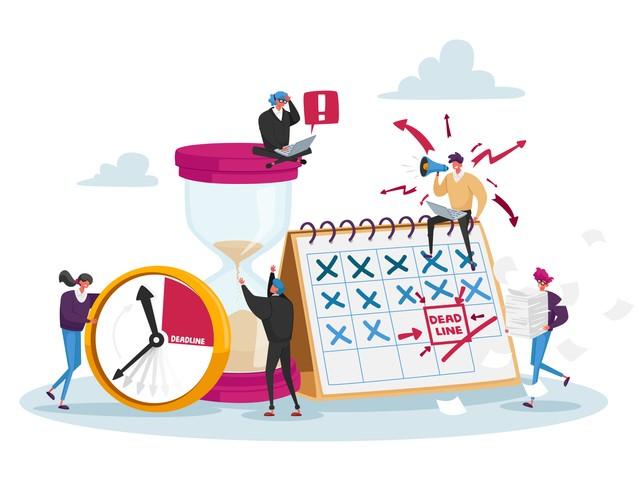
Slowing down earlier in the pandemic went well – so why speed back up?

You may also like
When the first Covid wave hit the Netherlands in the spring of 2020, we, like many, rolled with the punches. As assistant professors in the humanities (one with tenure, one without) and as parents of two young boys (aged 6 and 4), we did our best to combine our professional obligations with home-schooling our children.
As recently arrived international employees, however, we did not have a support network in place. The effects were tangible. We spent more time on teaching and administrative tasks than ever before, while time for research dwindled. Even more worryingly, our eldest son began to show signs of depression. We kept our chins up and soldiered on, but our experience confirms the findings of a study by the Dutch Young Academy: the negative impact of the first Covid wave in 2020 was felt most keenly (among university staff) by early career academics with young children at home.
Despite the physical and mental toll of the first lockdown, our memories are not unequivocally negative. We divided our days in half, with one partner working and the other taking care of the children. We managed to stay on track by continuing our work in the evenings and at the weekends. But we were forced to slow down during at least one part of the day. Apart from the negative impact on research time, the experience of slowing down was beneficial. We roamed the woods in our area and we became close friends with another expatriate academic couple, talking freely about work and life while our children played together.
- Recognition of academia’s ‘invisible labour’ is long overdue
- Don’t believe the hype: being an ECR needn’t be a lonely existence
- Conversations around stress must move beyond ‘I’m fine, how are you?’
Not everyone had the same experience, obviously, but we could see that many colleagues coped by slowing down. Another close friend, who was head of a 90-person department, had to completely overhaul the organisational structure and keep everyone afloat – a gargantuan task. So, every day, between 5pm and 6pm, she went for a bike ride to clear her head and recharge.
There was also an attempt on the part of our university to accommodate; it was understood that we would have fewer meetings and that activities not related to our core concerns could be cut. Paradoxically, our focus and our enjoyment of our work increased. Ideas were born from this quiet time spent away from our computer screen. This experience, though, is not surprising – as recent calls for a “slower” academic environment and for deep thinking illustrate, our teaching and our research would benefit from shifting gears. We hoped that some of these positive effects would remain and that once our children were back in school, we would be able to have a slower and richer working environment.
These great expectations were not met. Rather, slowly but surely, the opposite has happened. Instead of slowing down, our working lives are now hurtling along at greater speed than ever. Some days consist of back-to-back meetings, from nine to five, without a break. Instead of becoming richer, our professional interactions have flattened: opportunities for distraction multiply; the spontaneity of social engagement slackens; and hybrid teaching has adversely affected our connection with students. Reserving uninterrupted time for focused work has become harder. Joining a meeting from a train, listening to an online lecture while preparing dinner, taking a quick Zoom call on your day off – all have become standard, perhaps even expected. Instead of honing our creativity, we are bound to our calendars more than ever before.
This is not to say that working in a hybrid environment has no benefits: the cost of frequently travelling to faraway conferences has disappeared (sustainability); students who miss a class can join online (equality); advisory boards can have a more diverse constitution because they are no longer bound to a place (inclusivity).
But acknowledging these benefits should not blind us to the fact that our new possibilities have created a new kind of pressure: now that we can be everywhere, we often forget to ask whether we should be there. Like with so many technologies in the modern world, we do not use digital platforms to save time, we use them to do more. The problem is precisely that online meetings are so convenient and so efficient and do have clear benefits. We go along with the process and only later realise that we used to feel energised after a lively debate with colleagues. Now, we mostly just feel tired.
So, how do we move forward? We should not wait for the next pandemic or global disaster to slow down. Rather, we must make a conscious effort to instil new habits and to develop new policies.
We can collectively decide to prioritise time for ourselves to think about our work, to evaluate our path and our choices, instead of attending yet another online meeting or lecture. We can simplify bureaucratic tasks and scale back control mechanisms. We can build a culture in which we do not feel pressured to attend all online events, so that when we do attend, we can listen with our full attention.
There is also a responsibility on the part of our institutions and organisations. We need to collectively take a good look at whether all these seemingly efficient tools work, and if they don’t, we should not be reluctant to simply discard them. Just as the citizens of Cape Town were surprised to find penguins walking in the streets, we must try to reclaim the space in our heads, to make room for the unexpected.
Shari Boodts is senior researcher in medieval history at Radboud University in Nijmegen, the Netherlands. She is a member of the Dutch Young Academy and the Radboud Young Academy, where she works to promote cooperation rather than competition as the bedrock of academia.
Frederik van Dam is assistant professor of European Literature, also at Radboud University. He is a member of the Radboud Young Academy, where he hopes to stimulate interdisciplinary collaboration in teaching as well as in research.
If you would like advice and insight from academics and university staff delivered direct to your inbox each week, sign up for the Campus newsletter.


